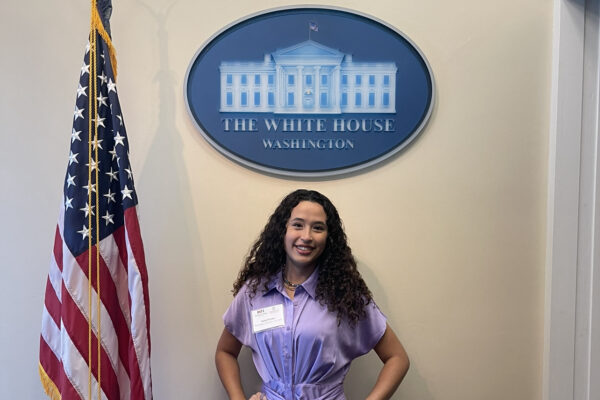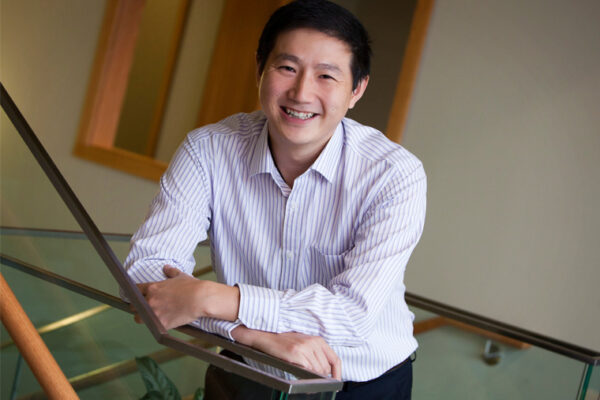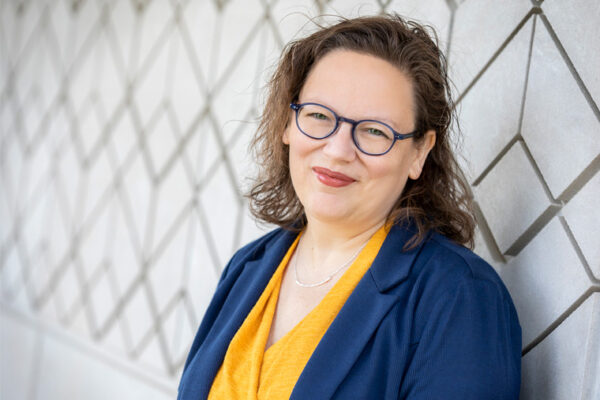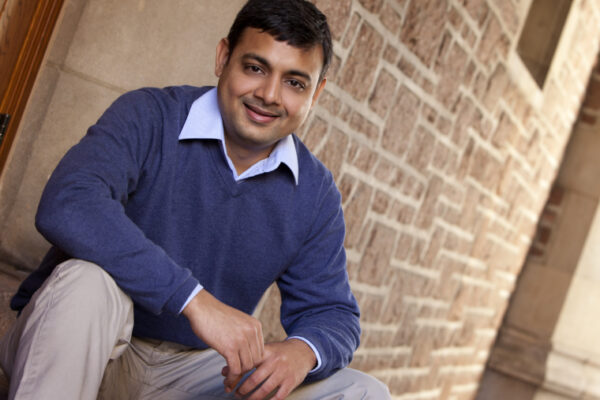NIH grant supports Jha’s work on ethics of AI in imaging
A $314,807 grant from the National Institutes of Health (NIH) will support Abhinav Jha’s interdisciplinary work looking at the ethics of artificial intelligence implementation in the medical sphere.
Before test results, signs of COVID-19 are in water systems
Research from the lab of Fangqiong Ling at the McKelvey School of Engineering finds SARS-CoV-2 material in wastewater reflects illnesses in communities. It also helps establish guidance for future studies.
Student Briceño joins in Hispanic Heritage Foundation events
Nicole Briceño, a first-year student at Washington University, took part in the National LOFT Leadership Institute Open Space Summit and the 35th Hispanic Heritage Month Celebration in September in Washington.
Engineering faculty collaborate on yeast research
Yixin Chen will work with two McKelvey School of Engineering alumni on a collaborative project with the U.S. Department of Energy and Lincoln University to improve biomanufacturing.
Engineering faculty awarded $10.7M in federal energy grants
McKelvey School of engineering faculy Zhen (Jason) He, Young-Shin Jun, Vijay Ramani and Fuzhong Zhang will lead new projects focused on clean energy technologies thanks to $10.7 million in new funding, collectively, from the U.S. Department of Energy.
New system creates bioplastics, consumes CO2
A team of researchers including Joshua Yuan at the McKelvey School of Engineering has developed a system that uses carbon dioxide to produce biodegradable plastics. They could someday replace the nondegradable plastics used today.
Hidden microbiome fortifies animals, plants too
Pioneering research at Washington University helped people understand the fundamental role of gut microbes in human health and disease. Now a community of local scientists is learning more about the diverse microbial systems that support animals, plants and ecosystems.
Chakrabartty works to make AI more energy efficient
Shantanu Chakrabartty, at the McKelvey School of Engineering, will lead a project funded by a three-year $1.1 million grant from the National Science Foundation to make artificial intelligence systems more energy-efficient.
Oyen and team receive funding to study placental function
An award from Wellcome Leap will support Michelle Oyen’s study of fetal growth restriction during gestational development. The program aims to reduce stillbirth rates by half.
WashU researchers observe cancer-like nucleoli in healthy cells
A discovery in the lab of Amit Pathak at the McKelvey School of Engineering connects mechanobiology to nuclear condensates in healthy cells.
View More Stories









